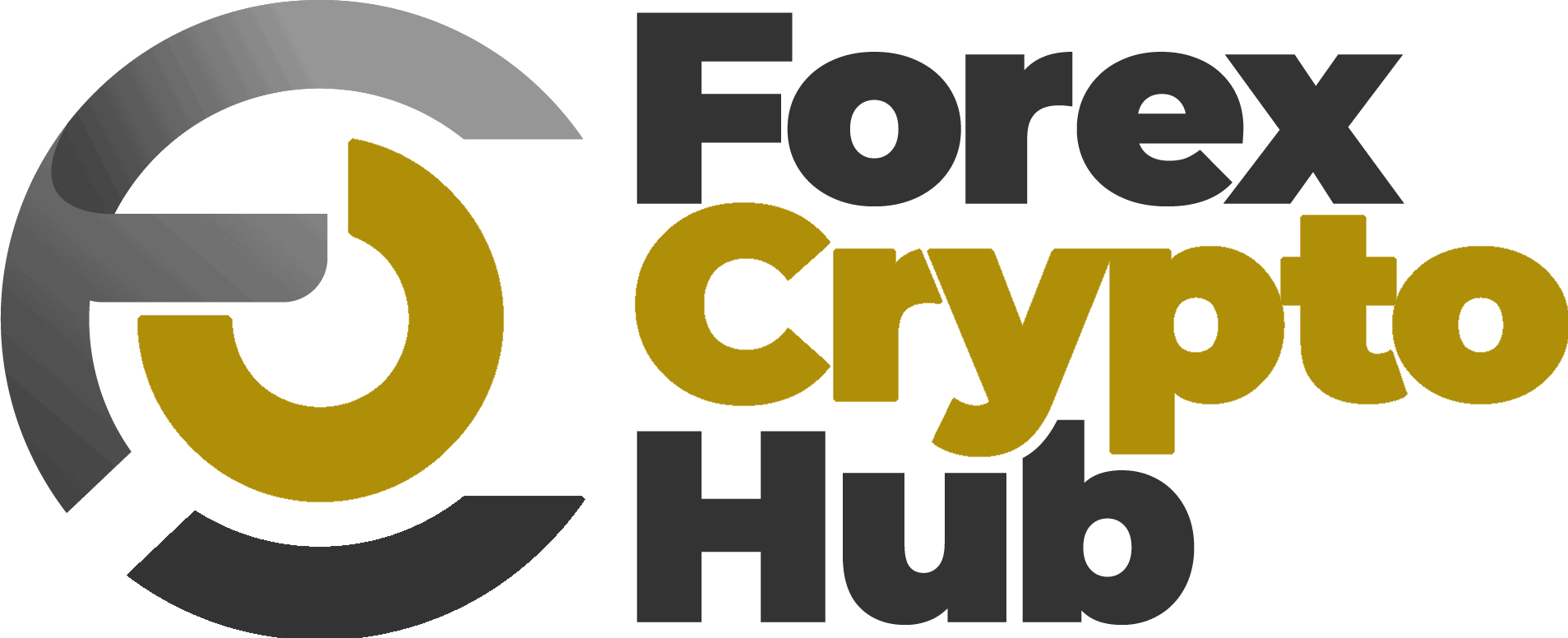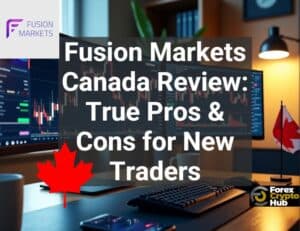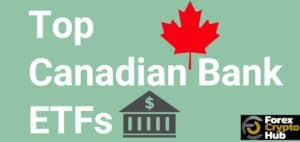Updated April 2025
In most parts of the world, trading forex and contracts for difference are deemed the most accessible investment instruments. Across most of the world, retail investors can start trading on the forex market with as little as a few hundred dollars. Millions of people trade forex every day, and there are thousands of brokers catering to the demand. However, the situation is very different for traders seeking forex brokers accepting US clients.
Article Summary
- Forex Brokers That Are Accepting US Clients
- Retail Forex Brokers Registered in The USA
- Offshore Brokers That Accept US Clients
- Is Forex trading Legal in The United States?
- Forex Regulations in The United States
- Forex Trading Rules Followed by US Brokers
When you think of the world’s leading financial centers, places like London, New York, Tokyo and Singapore spring to mind, although New York is a finance hub, it no longer has any significance in the world of trading FX. There are no noteworthy reasons why an average retail investor from Europe, or anywhere else, would be interested in opening a forex trading account with a US forex broker.
Forex Brokers That Are Accepting US Clients
List of Forex Brokers Accepting US Clients
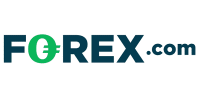
Broker Name: Forex.com
| Broker Type | Market Maker |
| Regulations | NFA, CFTC, RFED, FCM |
| Min Deposit | $100.00 |
| Account Base Currency | USD CAD GBP |
| Max Leverage | 50:1 |
| Trading Platforms | FOREXTrader, MetaTrader 4, MetaTrader 5, Web Trader FOREX.com is a registered FCM and RFED with the CFTC and member of the National Futures Association (NFA # 0339826). |
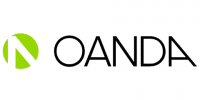
Broker Name: Oanda
| Broker Type | Market Maker |
| Regulations | CFTC, NFA, FCA, ASIC, MAS, IIROC |
| Min Deposit | $0 |
| Account Base Currency | AUD CAD EUR GBP HKD JYP SGD CHF USD |
| Max Leverage | 50:1 |
| Trading Platforms |
| OANDA Corporation is a registered Retail Foreign Exchange Dealer (RFED) with the U.S. Commodity Futures Trading Commission (CFTC), and a Forex Dealer Member (FDM) of the National Futures Association (NFA # 0325821, which can be used to search for more information about OANDA using the NFA’s BASIC resource). Please refer to the OANDA Corporation Risk Disclaimer for details. |

Broker Name: IG US
| Broker Type | Market Maker |
| Regulations | CFTC, NFA, FCA |
| Min Deposit | $250.00 |
| Account Base Currency | USD |
| Max Leverage | 50:1 |
| Trading Platforms | Web trading, Metatrader 4, Mobile app |
IG is a trading name of IG US LLC (a company registered in Delaware under number 6570306). Business address, 200 West Jackson Blvd., Suite 1450, Chicago, IL 60606. IG is a registered RFED and IB with the Commodities Futures Trading Commission and member of the National Futures Association (NFA ID 0509630).

Broker Name: ATC Brokers
| Broker Type | ECN |
| Regulations | CFTC, NFA, CIMA |
| Min Deposit | $2000.00 |
| Account Base Currency | USD |
| Max Leverage | 1:200 (non-US accounts; 1:50 for US clients) |
| Trading Platforms | Metatrader 4, MT Pro |
ATC BROKERS (US) is a member of the National Futures Association (NFA 358522) and is a registered introducing broker with the Commodity Futures Trading Commission (CFTC).
More Noteworthy US Forex Brokers
Interactive Brokers
- Broker Name: Interactive Brokers
- Broker Type: ECN
- Regulations: CFTC, NFA, SEC, FINRA
- Min Deposit: $0
- Account Base Currency: USD, EUR, GBP, AUD, CAD, CHF, JPY
- Max Leverage: 1:50
- Trading Platforms: Trader Workstation (TWS), Web, Mobile
- Details: Offers 150+ markets, including forex, with low commissions (e.g., $0.0001 x trade value on Ideal Pro account). Spreads are competitive but not the lowest. Advanced charting via TWS. Regulated by CFTC and NFA.
TD Ameritrade (Thinkorswim)
- Broker Name: TD Ameritrade
- Broker Type: Market Maker
- Regulations: CFTC, NFA, SEC, FINRA
- Min Deposit: $0
- Account Base Currency: USD
- Max Leverage: 1:50
- Trading Platforms: Thinkorswim, Web, Mobile
- Details: Acquired by Charles Schwab, TD Ameritrade’s Thinkorswim platform offers robust tools for forex and other assets. Spreads are mid-range. Regulated by CFTC and NFA.
Ally Invest
- Broker Name: Ally Invest
- Broker Type: Market Maker
- Regulations: CFTC, NFA, SEC, FINRA
- Min Deposit: $0
- Account Base Currency: USD
- Max Leverage: 1:50
- Trading Platforms: Web, Mobile
- Details: Offers forex alongside stocks and ETFs. Mid-range spreads and simple platform suited for beginners. Regulated by CFTC and NFA.
Tastyfx
- Broker Name: Tastyfx
- Broker Type: Market Maker
- Regulations: CFTC, NFA
- Min Deposit: $250
- Account Base Currency: USD
- Max Leverage: 1:50
- Trading Platforms: Web, Mobile, MetaTrader 4
- Details: A newer entrant, Tastyfx offers competitive spreads and a user-friendly platform. Regulated by CFTC and NFA.
Offshore Brokers That Accept US Clients
- LMFX: Unregulated, based in St. Vincent and the Grenadines. Offers high leverage (up to 1:1000), low deposit ($50), and MetaTrader 4. Accepts USD, EUR, GBP, AUD, CAD, and crypto (Bitcoin, Ethereum, etc.). Risky due to lack of regulation; not recommended for US clients.
- FXChoice: As of December 2023, FXChoice suspended trading services and stopped accepting new US clients. Existing US clients may still access limited account activities (e.g., withdrawals), but new accounts are not permitted.
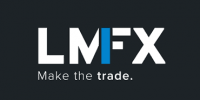
Broker Name: LMFX
| Broker Type | ECN |
| Regulations | UNREGULATED |
| Min Deposit | $50.00 |
| Account Base Curreny | USD, EUR, GBP, AUD, CAD, Bitcoin, Gold, Bitcoin Cash, Litecoin, Ethereum and XRP |
| Max Leverage | 1:1000 |
| Trading Platforms | Metatrader 4, Web trader, Mobile app(MT4) |
Is Forex trading Legal in The United States?
Many people wonder if forex trading is even legal in the US, and it’s a fair question. Although the regulations are completed, it’s most certainly legal to trade forex in the United States.
What often misleads people is that when you visit most forex and CFD brokers websites, you’ll probably see a notice in the footer of the website stating that they don’t accept US citizens or residents as clients.
In most of the world, leveraged forex trading and contracts for difference are often regulated under the same legislation and offered together by brokers.
However, CFDs are not allowed to be sold to retail investors in the United States. Any overseas broker selling CFDs to a US citizen would be violating federal laws and may be prosecuted by the SEC.
Because of the considerable risk involved in cooperating with US forex traders, many firms keep their distance.
Forex Regulations in The United States
There are two primary organizations in the United States which are responsible for regulating and overseeing the forex market.
However, there are even more organizations for regulating other financial products and trading instruments in the US. Most countries only have one national competent authority to report to.
- Commodity Futures Trading Commission (CFTC): A federal agency overseeing forex brokers, requiring registration as Retail Foreign Exchange Dealers (RFEDs) or Futures Commission Merchants (FCMs).
- National Futures Association (NFA): A self-regulatory organization (SRO) enforcing compliance with CFTC rules. All US forex brokers must be NFA members.
Forex Trading Rules Followed by US Brokers
Forex brokers operating in the US are required to follow a number of very specific rules in terms of how the products are structured, which differ significantly from other countries, such as the UK, Australia, Europe and others.
These rules originate from the legendary Dodd-Frank Wall Street Reform and Consumer Protection Act
Limitation on leverage
Although most financial regulators around the world have reviewed their stance on leverage, at the time, the US was one of the only countries which imposed strict limits on how much leverage brokers can give to traders. When trading with a US broker, you’re only able to get leverage up to 1:50 on major currency pairs and 1:20 on minor currency pairs[4].
| Pairs | Leverage |
| Major Pairs | 1:50 |
| Minor Pairs | 1:20 |
Prohibition on hedging and FIFO offsetting
According to a rule implemented by the NFA in 2009, retail forex brokers must not allow their clients to hedge trades, which means they may not have long and short positions held concurrently.
In addition, if a trader chooses to have more than one position of the same currency pair, they cannot choose which position to close first, they are closed according to a First-in First-out rule[5].
- Leverage Limits: Maximum 1:50 for major currency pairs, 1:20 for minors, compared to higher leverage (e.g., 1:500) in some offshore jurisdictions.
- No Hedging: NFA Rule 2-43 (2009) prohibits holding long and short positions simultaneously on the same currency pair.
- FIFO Rule: Positions must be closed in the order they were opened (First-In-First-Out), limiting trading flexibility.
- Capital Requirements: Brokers must maintain $20 million in capital, plus high compliance and NFA membership fees, deterring new entrants.
- No CFDs: CFDs are banned for retail investors, restricting US brokers to forex and futures.
Conclusion
About This Article
Author: Roslan Skarsgard – Roslan has worked for numerous forex brokers and investment firms in London, Cyprus, Malta & Singapore in various sales, marketing and operations roles.
Reviewed & Edited by: Mark Prosz
Sources of information and credits for this post include:
[1] https://en.wikipedia.org/wiki/U.S._Securities_and_Exchange_Commission
[2] https://en.wikipedia.org/wiki/National_Futures_Association
[3] https://www.investopedia.com/articles/forex/011515/top-usregulated-forex-brokers.asp
[4] https://www.cftc.gov/sites/default/files/idc/groups/public/@newsroom/documents/file/forexfinalrulefactsheet.pdf
[5] https://www.nfa.futures.org/rulebook/rules.aspx?Section=4&RuleID=RULE%202-43
[6] https://www.cftc.gov/PressRoom/PressReleases/5883-10
[7] https://www.financemagnates.com/forex/analysis/repealing-dodd-frank-trump-spark-global-deregulation-race/
[8] https://financefeeds.com/cfd-regulation-global-impact-comprehensive-guide/
[9] https://www.nfa.futures.org/registration-membership/membership-and-directories.html
A portion of the Sign up links to brokers websites are affiliate links. We may receive a commission with no charge to you. This enables us to keep creating helpful forex trading content for our readers for free.
